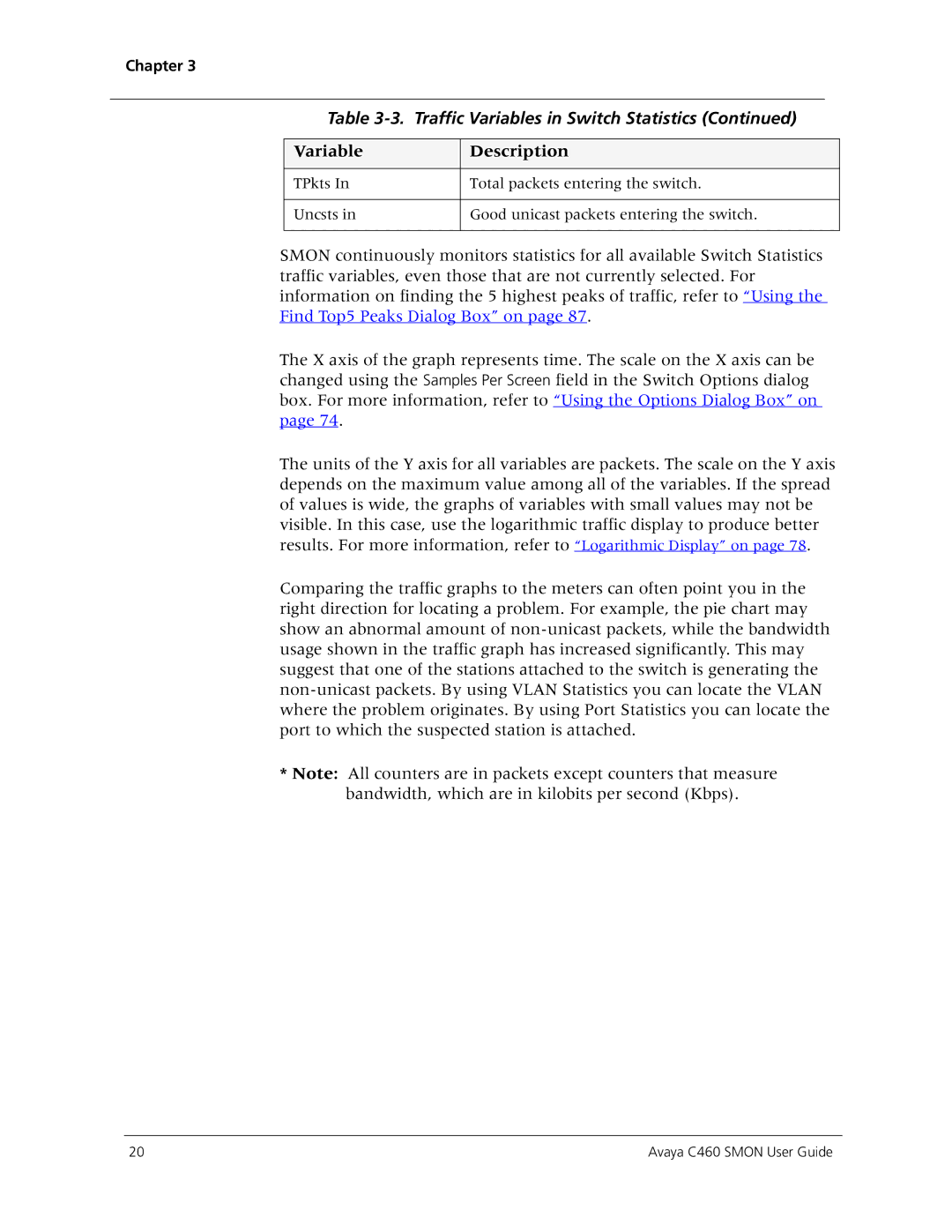
Chapter 3
Table 3-3. Traffic Variables in Switch Statistics (Continued)
Variable | Description |
|
|
TPkts In | Total packets entering the switch. |
|
|
Uncsts in | Good unicast packets entering the switch. |
|
|
SMON continuously monitors statistics for all available Switch Statistics traffic variables, even those that are not currently selected. For information on finding the 5 highest peaks of traffic, refer to “Using the Find Top5 Peaks Dialog Box” on page 87.
The X axis of the graph represents time. The scale on the X axis can be changed using the Samples Per Screen field in the Switch Options dialog box. For more information, refer to “Using the Options Dialog Box” on page 74.
The units of the Y axis for all variables are packets. The scale on the Y axis depends on the maximum value among all of the variables. If the spread of values is wide, the graphs of variables with small values may not be visible. In this case, use the logarithmic traffic display to produce better results. For more information, refer to “Logarithmic Display” on page 78.
Comparing the traffic graphs to the meters can often point you in the right direction for locating a problem. For example, the pie chart may show an abnormal amount of
*Note: All counters are in packets except counters that measure bandwidth, which are in kilobits per second (Kbps).
20 | Avaya C460 SMON User Guide |
